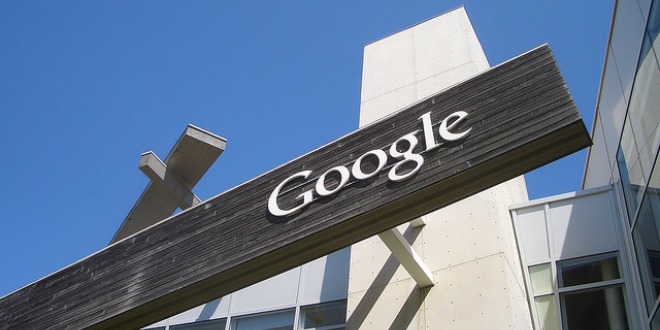Is Google getting weaker?

Some experts believe that for the first time in many years, Google is showing signs of weakness. Last year, for example, the company's shares fell from $ 600 per share to $ 400. The Google Plus social network turned out to be useless to no one. Google Glass was recognized as an unsuccessful project and closed (although, so far only for a while). There are competitors in the mobile segment. It may seem that the influence of Google is beginning to slowly decline.
Now the corporation owns the most popular search service in the world, controls the most extensive network of publishers, and also owns a huge advertising network, the largest ever created. Until now, the corporation owns about 80% of the search market.
But things can change. For example, it is almost impossible to keep those 80% of the market. Competition is growing, which means that the probability of losing some market share also increases. In addition, the corporation has already had conflicts with the authorities of both the US and Europe - and there is no doubt that such conflicts will still occur.
')
In 2013, the corporation managed to get dry out of the water in the US - then the company won a lawsuit against the US authorities, thanks to good lobbying and a favorable political climate. Also, Google has so far managed to avoid such tough requirements of the European Union, as the division into two parts. The corporation has entered into an agreement with EU officials, the details of which were not disclosed, but it is known that the company had to pay enormous funds to achieve such an agreement without having to be divided into two parts.
This separation will be a very bad event for the corporation - because, in this case, the company will have to work with scattered offices.
Now you should pay attention to the fact that Chrome owns about 40% of the browser market. Android dominates the mobile operating system market (over 80%). If Google can continue to work with Mozilla and Apple, then the corporation will own 75% of the search market for desktop browsers and about 90% for mobile browsers. But the strength may be the weakness of the company. The fact is that such dominance attracts the attention of antimonopolists.

And the last thing Google wants is to share the resources of the corporation, or to have problems with the authorities. At the same time, despite the positioning of the company as open, in many of its departments, activities are carried out about which no one at all knows anything. For example, nobody knows what they are doing in GoogleX. That is, of course, we know that they are working on the creation of robot-cars and medical nanobots. But here, probably, they are working on attracting financial flows, studying new activities that are not related to the current work of Google and the standard model of the advertising network. It is possible that the corporation will even gradually slow down its own development (of a standard business model) in order to effectively serve the current market share in the coming years without causing irritation among the regulatory authorities. It seems that this is a good option for strategic development in the long term.
In addition, Google has successfully managed to get dry out of the water after a conflict with the European Union and the US authorities, spending less than 10% of its market share on this. The corporation continues to be at the top of the advertising ecosystem, while the company leaves room for competition. Google defeated the Capitol, Google defeated Brussels. And now that everything is over, the corporation can be very attractive to investors on Wall Street.
Now Google is very strong, perhaps stronger than ever. The weaknesses of the corporation are so far only imaginary, the “Corporation of Good” is now in the most active phase of its activity.
Source: https://habr.com/ru/post/283874/
All Articles